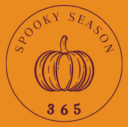
Have you ever wanted to start a beautiful garden, but, like, make it moody? You may have heard of what is being called a “Goth Garden”. This is a garden that focuses mainly on *black or darker-colored plants to give it a whole moody, gothic vibe. Goth gardens can also include Gothic architectural features like pointed arches or stained glass. If your aesthetic leans more towards fog rolling through a cemetery (for example) than a bright, sunshiny day, this could be more your style.

In fact, I’d love to plant my own Goth Garden, but to be honest, I don’t have what you would consider a green thumb. You could call it more of a brown or black thumb, which, now that I’m thinking about it, could be in keeping with the Goth style of things 😉
In the spirit of keeping it spooky, here are some examples of beautiful dark plants that you could use to create your own Goth Garden. I’ve also included some background gardening information, but I put that at the end, so we can get to the good stuff first.
*Full disclosure, most “black” plants aren’t actually black. Very few black plants exist naturally in nature
Flowers:
1. Queen of the Night Tulip – Tulipa ‘Queen of Night’

2. Black Barlow Columbine – Aquilegia vulgaris var. stellata

3. Hollyhock Nigra – Alcea rosea nigra

4. Black Parrot Tulip – Tulipa ‘Black Parrot’

5. Persian Lily – Fritillaria persica

6. Midnight Ruffles Hellebore – Helleborus ‘midnight ruffles’

7. Black Devil Pansy – Viola x wittrockiana

8. Calla Lily Black Star – Arum palaestinum

9. Black Bat Flower – Tacca chantrieri

10. Black Velvet Petunias – petunia ‘black velvet’

You can also add some dark colored plants that aren’t flowers to break up your garden. Depending on the zone you live in and growing requirements, you can also add some black/ dark grass, shrubs, or succulents.
Other Plants:
11. Black Lace Elderberry – Sambucus nigra

12. Black Mondo Grass – Ophiopogon planiscapus ‘Nigrescens’

13. Black Magic Elephant Ear – Colocasia esculenta ‘Black Magic’

14. Sweet Caroline Sweet Potato Vine – Sweet Potato Vine ‘Sweet Caroline’ Ipomoea batatas

15. Black Rose Succulent – Aeonium Arboreum ‘Zwartkop’ (Black Rose)

16. Purple Majesty Ornamental Millet – Pennisetum glaucum

17. Black Pearl Ornamental Pepper – Capsicum annuum ‘Black Pearl’

18. Hedgehog Succulent – Sinocrassula yunnanensis

19. “Black Prince” – Coleus scutellarioides

Some Background Gardening Information (feel free to skip if you’re only in it for the eye candy!)
Hardiness Zones (USA and Puerto Rico)
To simplify things, I am basing my information on the hardiness zones of the United States and Puerto Rico. Of course, beautiful plants exist all around the world, but I will be using the Hardiness Zones based here as it is what I am most familiar with.
By “zone”, I am referencing the Map of Hardiness zones found via: https://planthardiness.ars.usda.gov/
Basically, the country is divided into different zones based on the winter (coldest) climates in each area. You can use this map to determine if the plants you’d like to plant outdoors have a good chance of thriving/ surviving or not. Most plants are categorized into different hardiness zones, which lets you know whether your plant should do well in your zone. For example, should you plant roses outside if you live in Alaska? The answer is yes, you can, but you need to choose a type that is hardy to that specific area. This will require some Googling on your part. Fun Fact: Alaska spans hardiness zones 1- 8!
It is worth it to note, however, that this information is mainly for outdoor planting. Houseplants can survive in zones not suited to them because, of course, the inside of your home is not subject to such extreme temperatures as the outdoors are.
For more in-depth information, you should check out the USDA’s website at: https://planthardiness.ars.usda.gov/. There’s a lot of good information on it!
Annuals vs. Perennials
That’s not all you need to consider when thinking about planting, though. I really like how Real Simple (an online magazine) described the difference between annual and perennial plants:
“The difference between perennials and annuals is simple—perennials are plants that will come back and regrow year after year, while annuals die off when temperatures get too cold and require you to plant new plants the following spring.
To confuse things a bit, some plants may be annual or perennial , depending on which plant hardiness zone you live in. So in the South and parts of the country that have very mild winters, they’ll come back, but they will die off if you plant them in the northern, colder parts of the U.S.” (found via https://www.realsimple.com/home-organizing/gardening/outdoor/perennials-vs-annuals).
Goth Garden at a Glance
I’ve created some charts on what plants we’ve discussed go in which zones to give you a quick idea of what may or may not survive being planted outdoors where you are (if you live in the USA or Puerto Rico). Please keep in mind that I compiled this as a starting point for your research. I didn’t even go into how different plants interact with each other, what kind of sun/ shade or soil each plant requires, etc… Also, don’t forget to check and see if your dream plants are toxic to humans or animals if you have kids, pets, or wildlife that may be sniffing around them!


As you can see, there is a lot to consider when designing your dream garden. I highly recommend that you do some more thorough investigating on which plants will work where you live and what each needs before you go on a gothic plant shopping spree 😊.
Well, what do you think? Would you plant a Goth Garden? If you do, please leave me a comment, and let me know. I’d love to see how it turns out!
Stay spooky out there!
– Dannie
